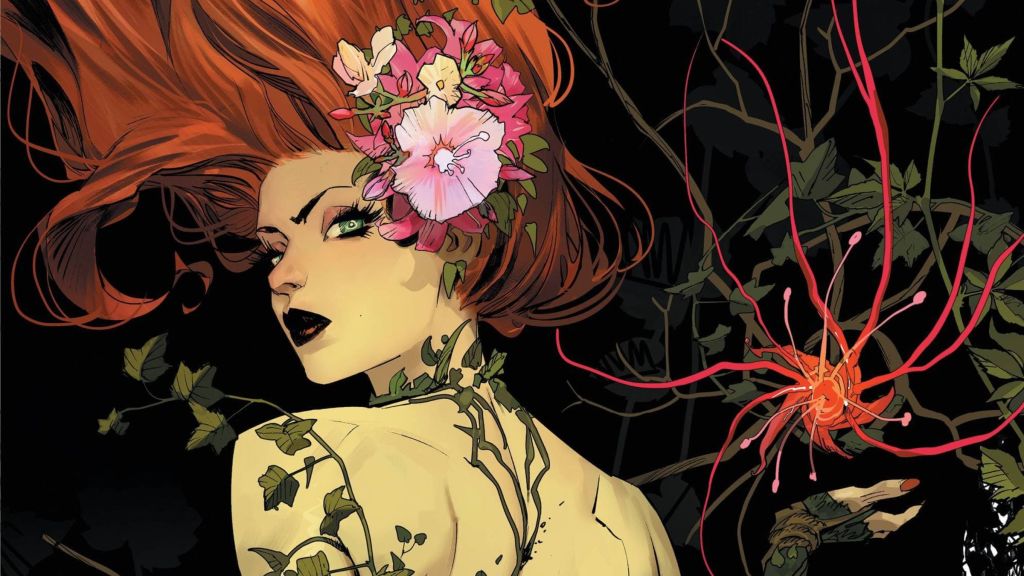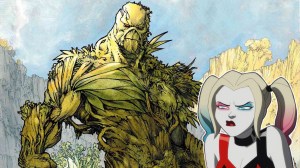Dr. Pamela Isley, better known as Poison Ivy, is an iconic character of DC Comics. Even fans who have not read her comics know full-well who this character is. Classically defined as an eco-terrorist, Poison Ivy has historically put the protection of plants above all else. Here’s the thing, though, Poison Ivy is a lot more like Marvel’s Magneto than readers realize, and it isn’t that hard to prove it. Both characters are deeply focused and driven to protect their people (well, fauna in Ivy’s case), are morally complex characters at best, and have taken radical actions to prove their points.
Videos by ComicBook.com
Poison Ivy got her start as part of Batman’s rogues gallery. In other words, she was once a pretty classic Gotham villain; however, her story has grown and changed a lot over the years. It once wasn’t hard to pitch her as an eco-terrorist and leave it at that. These days, DC Comics has to force Ivy into more extreme roles to make her less sympathetic, something we’ve already explored. To put this in perspective, Poison Ivy is a “villain” in that she often tries to shake up the status quo, typically going up against people who are participating in some form of injustice. Does that sound familiar? It should.
They Have a Point

Let’s start with the most obvious reasons why Magneto and Poison Ivy are effectively the same: they both have extremely valid points. Sure, they’re revolutionary extremeists at the best of times, but that doesn’t negate what they have to say. Magneto has always been transparent about his desire to protect mutants and his fear of what the future may hold in store for mutantkind. Given how the world has historically treated mutants, he’s not wrong to be worried about their future—or their present.
Meanwhile, Poison Ivy has taken it upon herself to fight for Earth and its fauna. In other words, she speaks for entities that otherwise cannot speak for themselves. She’s worried about climate crisis, ecological balance, and plant life. As such, she’s consistently battling human greed, pollution practices, and the destruction of nature. The things she’s fighting for don’t feel all that radical, especially not in hindsight. Admittedly, we all know that Poison Ivy can (and will) take the fight a step or two farther than any of us would ever dream of.
Blending the Lines Between Movements and Crime

Next, let’s consider how Poison Ivy and Magneto are the leaders of movements. Over the years, Magneto has established himself as a leader in many ways: The Brotherhood, Genosha, Krakoa, and now the X-Men. Essentially, he takes his thoughts and puts them into action, leading like-minded individuals toward his goals. Once again, we can all agree that these movements and organizations did some awful things; nobody is here to pretend that the Brotherhood of Evil Mutants only had sunshine and rainbows to offer the world. Even when Magneto helped lead the Krakoa-era of mutants, he would often cross the line, doing things that many mutants wouldn’t approve of, even if he was doing it for their sake.
Poison Ivy, as we already noted, speaks for plants and nature. She also speaks up for The Green. As such, she’s started more than her fair share of eco-terrorist movements, and yes, that means she collects like-minded followers. Her connection to plants and The Green is a reminder of who and what she represents.
Past, Present, and Future

Poison Ivy and Magneto are both characters who hail from trauma, albeit in vastly different manners. Magneto’s history is deeply interwoven with the Holocaust, as he himself is a survivor. Meanwhile, Poison Ivy has had several backstories, though typically her origin involves some sort of corporate or scientific exploitation. In both instances, these characters have been handed a reason to distrust humanity as a whole.
This foundation sets them apart from the rest. They’re necessary opponents to their larger universes. For Magneto, his role has often been to call Professor X out on his idealism or pacifism. For Poison Ivy, she’s always quick to call out how complacent superheroes (Batman, Justice League, etc) are when it comes to turning a blind eye to industrial or corporate threats.
Through the years, both Poison Ivy and Magneto have grown and changed so much. Both were originally presented as villains, but with time, their histories and motivations have evolved and changed. While their primary focus never wavered, it’s safe to say that their stories have become infinitely more complex and nuanced. Neither fits perfectly into any one role these days. They’re hero, villain, anti-hero, and activists all rolled into one.










